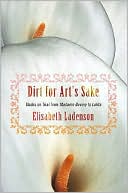

 |

|

The average rating for Dirt for Art's Sake: Books on Trial from Madame Bovary to Lolita based on 2 reviews is 4 stars.
Review # 1 was written on 2018-03-26 00:00:00 St-Germain Steve St-Germain SteveThis fascinating book takes a look at a variety of novels suppressed on the grounds of obscenity. Ladenson deals with books that are now considered classics (Madame Bovary, Ulysses, Lolita, Les Fleurs du Mal, and, to a lesser extent, Lady Chatterley's Lover), as well as the work of Henry Miller, and Radclyffe Hall's Well of Loneliness, tracing the history of literary censorship in Europe and America particularly. The French prosecution against Madame Bovary hinged on the moral purpose of the novel; in other words it wasn't the novel's subject of adultery that was the problem, but the question of whether or not Flaubert had presented adultery in a sufficiently negative light (and marriage in a sufficiently positive one). There was also the question of the novel's readership, the government prosecutor highlighting the fact that 'The light pages of Madame Bovary fall into even lighter hands, into the hands of girls, and sometimes married women'. The prevailing attitude was that women were essentially infantile, unable (as educated men would be) to distinguish between fiction and reality. The literary merits of the novel were of no account, only its moral purpose. I was particularly interested in the chapter of The Well of Loneliness, having read the novel out of curiosity. In terms of literary merit, it's not a great book. Nor does it present homosexuality in a particularly positive light. Nonetheless, the crucial question for the prosecution was 'does this book as a whole defend unnatural practices between women?', which - for all its negativity - it clearly does. The novel has often been criticised for its unhappy ending, although as Ladenson points out, 'the ending was what allowed the novel to be published' in the first place. A far more positive view of same-sex relationships is presented in EM Forster's Maurice, written in 1913/14. Forster, however, refused to allow the novel to be published until after his death, and it was finally published in 1971, four years after the Act decriminalising private homosexual acts between men aged 21 or over. As Ladenson remarks, Forster was 'too mindful of the consequences to be willing to become a martyr to this cause'. In England, it was not until 1959 that the Obscene Publications Act was revised to exempt works "in the interests of science, literature, art or learning, or of other objects of general concern". Its first big test came in 1963, with the Chatterley trial. What got Lawrence into trouble was not the subject matter of his novel, but the language he used and the explicit detail he went in to to describe sexual acts. Lawrence's work, however, had a clearly didactic message, and so did not test the new rules to the same extent as Henry Miller, who rejected the traditional 'art for art's sake' notion in favour of 'the triumph of the individual over art'. In the Massachussetts Supreme Judicial Court's opinion, Justice R Ammi Cutter stated that he found Tropic of Cancer 'dull, dreary and offensive'. Nevertheless, he concluded that 'It is not the function of judges to serve as arbiters of taste'. The case of Lolita is different again. The subject matter of the novel - what Humbert Humbert calls 'nympholepsy' and what we now call, less romantically, paedophilia, is now more taboo than ever. Unlike Lawrence the moralist, or Baudelaire the immoralist, Nabokov was an amoralist, claiming the novel has no moral function whatsoever, and that his only aim was to achieve 'aesthetic bliss'. This seems somewhat disingenuous in view of the subject matter of the book, which Nabokov would surely have known would give rise to moralistic readings. In her epilogue, Ladenson deals with the 'last big literary obscenity trials in France and the United States', which involved books dating from the 18th century - John Cleland's Fanny Hill, and the writings of the Marquis de Sade. Ladenson's study is scholarly, but also completely accessible to the lay reader, and a thoroughly engrossing and thought-provoking read. |
Review # 2 was written on 2017-02-22 00:00:00 Chris Stermer Chris Stermerrất nhiều thông tin hữu ích cho bà con nào muốn đọc về kiểm duyệt, sách ra tòa, tiếp nhận của độc giả, phản ứng của tác giả. những cuốn sách kiểu này đọc luôn thấy hứng khởi, bởi đơn giản là học được nhiều mà lại không đi vào kinh viện. |
CAN'T FIND WHAT YOU'RE LOOKING FOR? CLICK HERE!!!